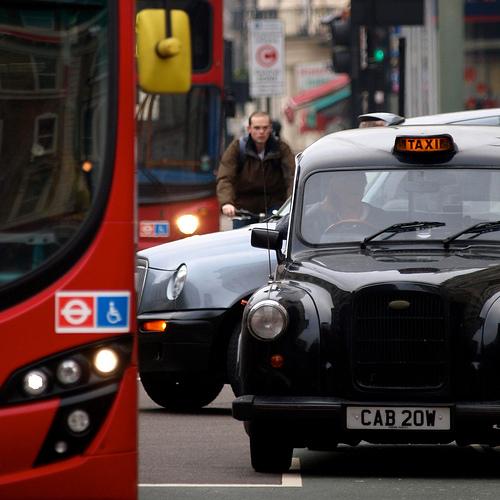- News
- Reviews
- Bikes
- Accessories
- Accessories - misc
- Computer mounts
- Bags
- Bar ends
- Bike bags & cases
- Bottle cages
- Bottles
- Cameras
- Car racks
- Child seats
- Computers
- Glasses
- GPS units
- Helmets
- Lights - front
- Lights - rear
- Lights - sets
- Locks
- Mirrors
- Mudguards
- Racks
- Pumps & CO2 inflators
- Puncture kits
- Reflectives
- Smart watches
- Stands and racks
- Trailers
- Clothing
- Components
- Bar tape & grips
- Bottom brackets
- Brake & gear cables
- Brake & STI levers
- Brake pads & spares
- Brakes
- Cassettes & freewheels
- Chains
- Chainsets & chainrings
- Derailleurs - front
- Derailleurs - rear
- Forks
- Gear levers & shifters
- Groupsets
- Handlebars & extensions
- Headsets
- Hubs
- Inner tubes
- Pedals
- Quick releases & skewers
- Saddles
- Seatposts
- Stems
- Wheels
- Tyres
- Health, fitness and nutrition
- Tools and workshop
- Miscellaneous
- Cross country mountain bikes
- Tubeless valves
- Buyers Guides
- Features
- Forum
- Recommends
- Podcast
news
 London:cyclist in traffic (copyright Simon MacMichael).jpg
London:cyclist in traffic (copyright Simon MacMichael).jpgLondon, Brighton and Nottingham "England's least car-dependent cities" - but score low on walking and cycling
London, Brighton & Hove and Nottingham have been named the least car-dependent places in England by the Campaign for Better Transport, with Wigan edging out Peterborough and Colchester as the location where locals are most reliant on motor vehicles.
The organisation’s Car Dependency Scorecard, first publiched in 2010, this year rated 26 cities or other urban areas, generally three per region, on four criteria – accessibility and planning, buses and trains quality and uptake, cycling and walking as alternatives, and driving and car use.
London scored highly on three of those four benchmarks – the exception being cycling and walking, with the report’s authors saying that “the limited percentage of children cycling to school and adults to work reflects the potential dangers of cycling in the capital and gave a lower score in the cycling category.”
Instead, the capital’s top ranking was principally due to its extensive public transport network as well as the low levels of car ownership within Inner London.
Both Brighton & Hove and Nottingham, despite their high ranking overall, saw their scores for walking and cycling come out lower than might have been expected.
In Brighton & Hove’s case, that was due to it having the second highest rate per capita of pedestrians killed or injured in road traffic collisions, while Nottingham was singled out as having “poor access” to the city centre “by public transport or cycling.”
Unsuprisingly, Cambridge had the top score for cycling and walking, with Swindon and cities in the South West also doing well on this measure; Gateshead, where fewer than half of children walk or cycle to school, came bottom, beneath Birmingham and Bradford.
According to the Campaign for Better Transport, “The cities that ranked bottom of the table showed poor accessibility to key services and high numbers using cars to commute to work.”
It added that “the report also shows that the cities lagging at the bottom of the table do not look likely to improve in the future.
“Their travel plans place too much emphasis on road infrastructure, cheap parking, and/or placing new business parks and homes where they would generate additional car journeys and lack the foresight to suggest more cost-effective ways to improve public transport to aid every-day journeys for their residents.”
Sian Berry, Sustainable Transport Campaigner for Campaign for Better Transport, commented: “The cities that have topped our ranking show how good planning and investing in transport infrastructure can provide decent transport alternatives and reduce the number of people having to make every-day journeys by car.
“Heavy investment in transport for London 2012 is already starting to show its impact with the capital moving up to top the ranking.
“But, local authorities need to realise the most cost-effective way to reduce dependence is to invest in cheaper, more-efficient public transport and build new developments that can be accessed by cycling and public transport and which reduce the need to travel, rather than throw money at expensive road plans that in reality fail to cut congestion,” she added.
Latest Comments
- Rendel Harris 30 min 23 sec ago
The Michelin Power Gravel Adventure might fit your requirements, or the Vittoria Terreno Zero ("tubeless ready" but no reason you couldn't run it...
- hawkinspeter 25 min 45 sec ago
Council showing 'utter disregard' for people against Liveable Neighbourhood scheme:...
- hawkinspeter 43 min 32 sec ago
Better in some places and worse in others. There's still pletny of gridlock going on. I want them to bring back the rickety flyover by Temple Meads...
- Robert Hardy 1 hour 13 min ago
The road network is not a sports venue or play park. If people want to race on it, whether on a car motorbike, bicycle or soapbox, then they need...
- Muddy Ford 1 hour 55 min ago
Disgraceful sentence that reinforces the contempt towards cycling. I hope both the driver and judge suffer a serious illness.
- lawrence18uk 10 hours 24 min ago
" in what appears to be two random, completely unprovoked attacks."...
- hawkinspeter 11 hours 15 min ago
You could get away with much less turning area required if you go for a Kakeya set...
Add new comment
1 comments
Living in Nottingham I an say that we have a pretty decent public transport system, lots of buses and a few trams as well.